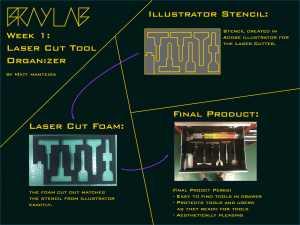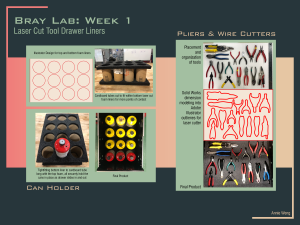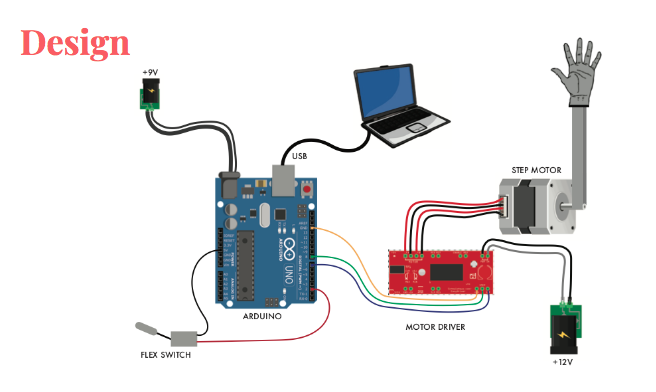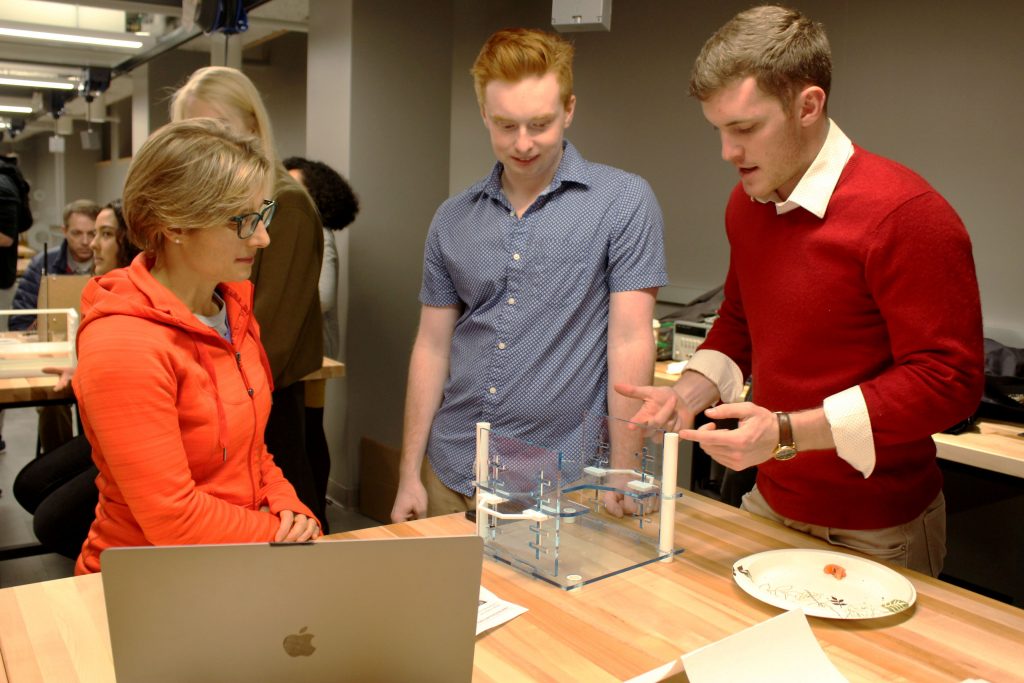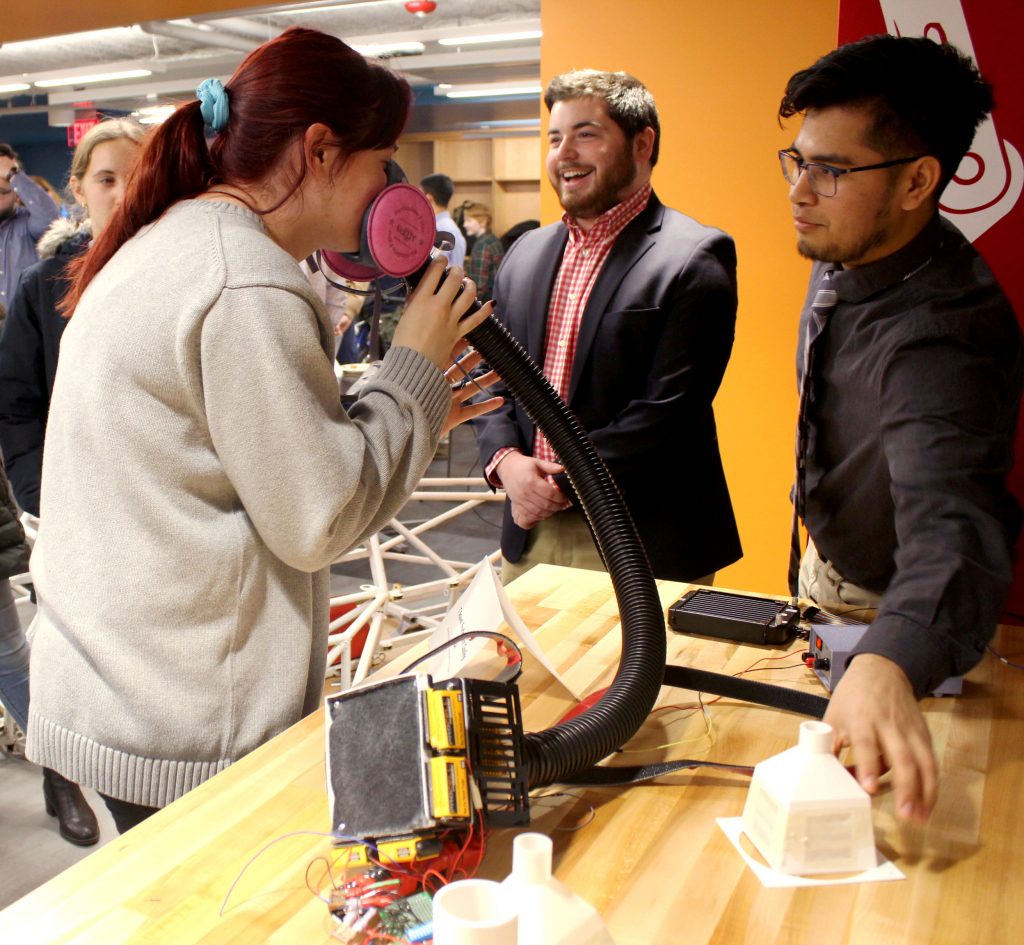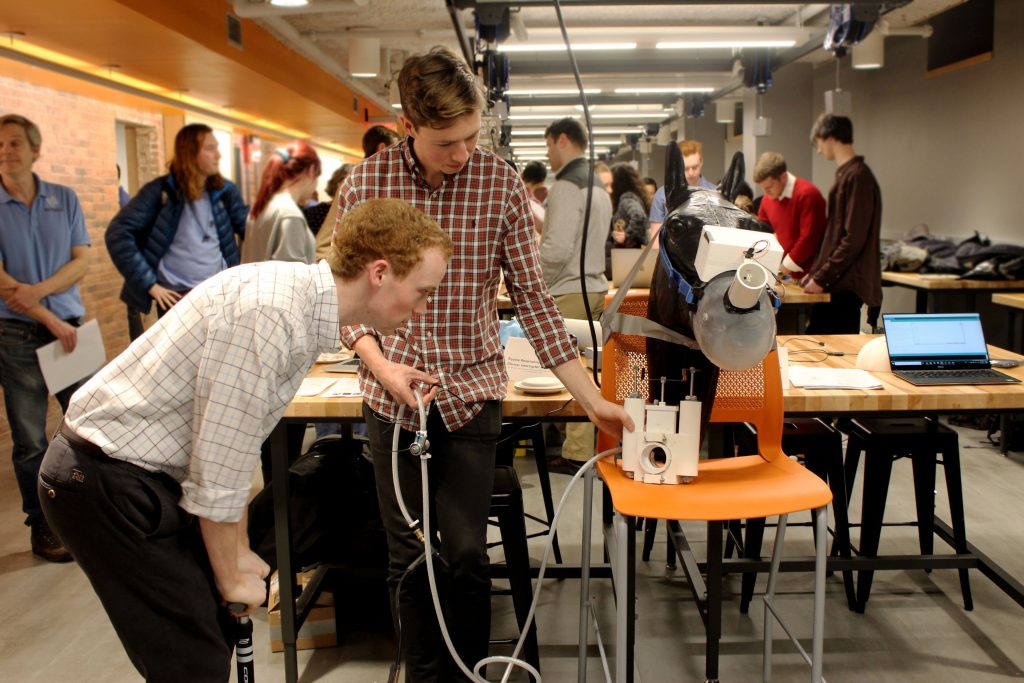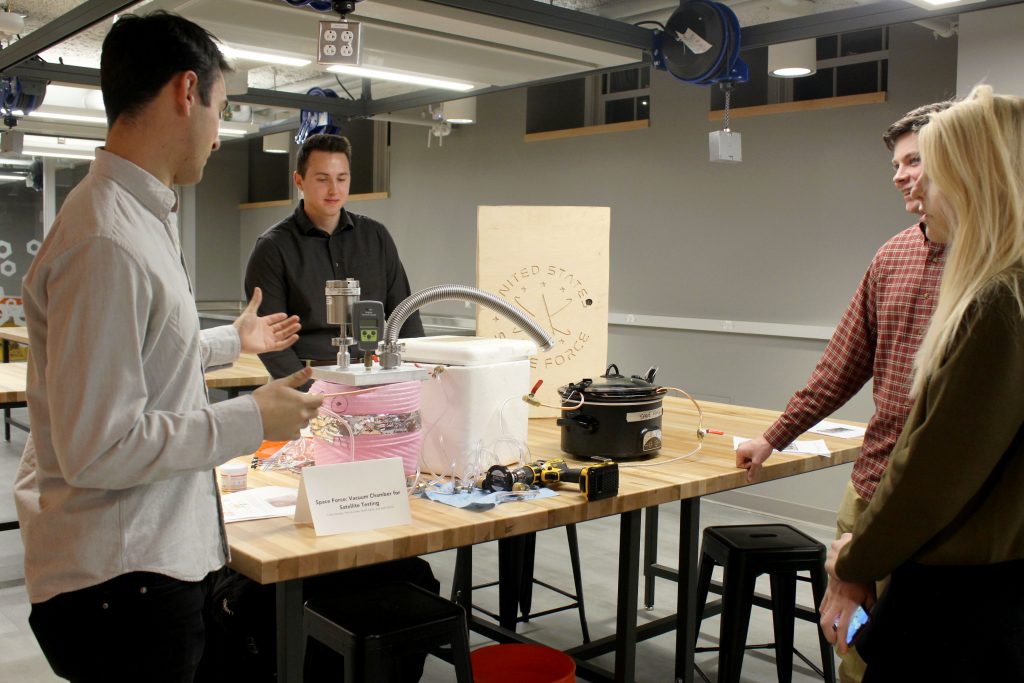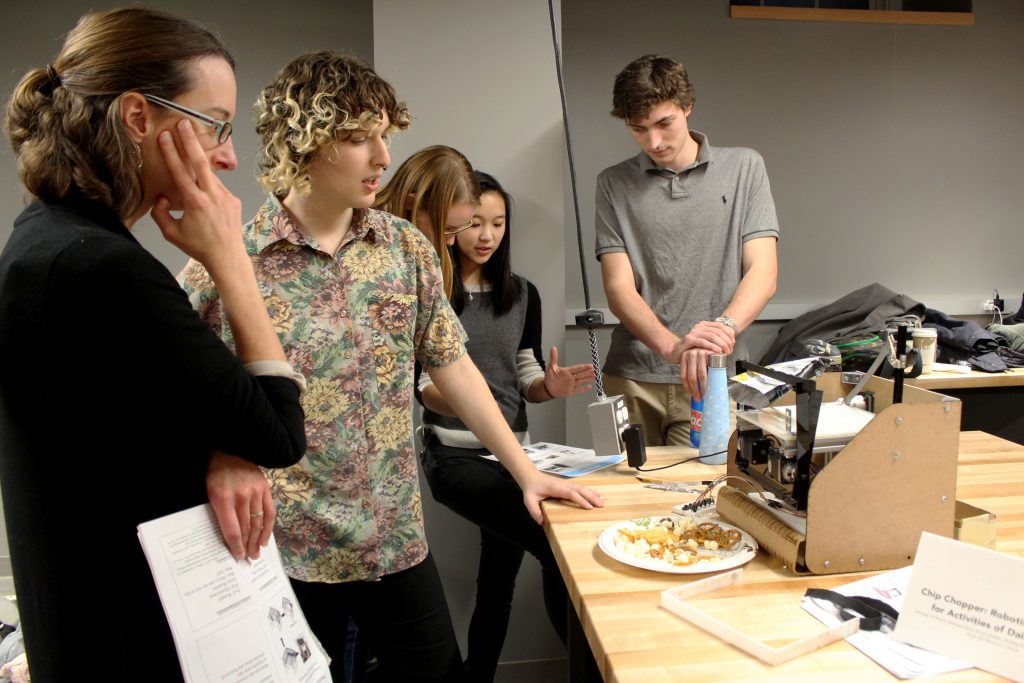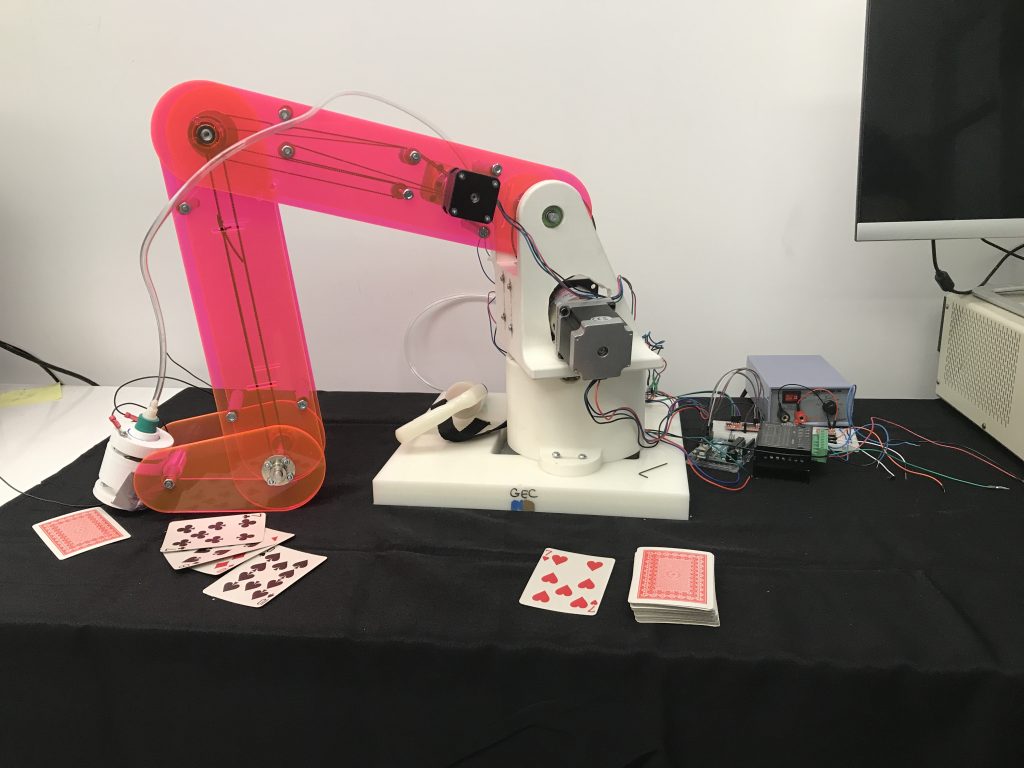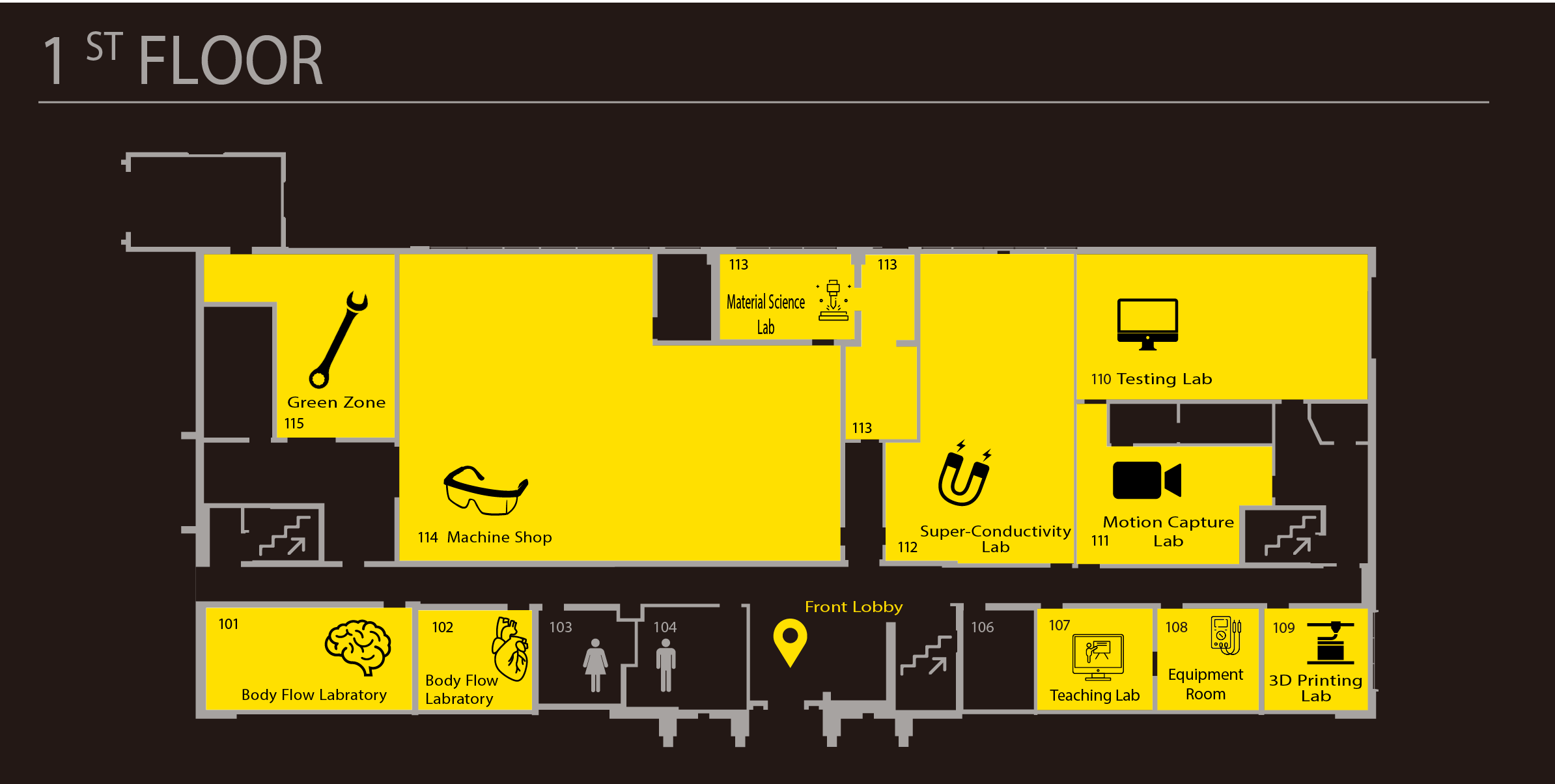Category: Blog Posts (page 2 of 15)
An interdisciplinary team of graduate students Kim Hallett (Human Factors Eng ’19), James Aronson (Mechanical Eng ’18, Innovation & Management ’19) and MJ Craig (Occupational Therapy ’20) with Cameron Taylor (MIT, PhD Biomechatronics) took home first place in usability at the 2019 MIT Assistive Technology (AT) Hack-a-thon. Their portable bidet, affectionately named The Bom-bidet, was designed with a co-designer who needs to use the bathroom in her workplace independently.
The team met for a few pre-hack meetings and placed an Amazon order that largely consisted of bidets, water guns, and tubing designed for home brewing in preparation for the event. The team presented their solution to judges after 11 hours of hacking. They also provided an Instructables, so other people could replicate the design.

Features include:
-9 inch long nozzle for easy access to those hard to reach places
-32 oz water tank providing 35 seconds of continuous pressurized water
-Single hand grip with right or left hand accessed push button (the water flow stops once released)
-Kill switch on the water bottle to prevent accidental activation
-Wrist strap to allow the user hands free transport
-8 AA battery pack to allow for portability
This is the second time Tufts students have placed first at the annual MIT AT Hack, with last year’s winning design, CiPods and CiPids Wireless, a device to allow people with a cochlear implant to use ear buds.
This fall 24 engineering and occupational therapy students in OTS-105 Assistive Technology spent hundreds of hours working on a semester long assistive technology project for a client with a disability. The client’s ages ranged from three to none-of-your-business, and they experience challenges such as cooking with one arm, or using an iPad with their elbow.
Team Keely, worked with an 8th grade student without motor control or sensation from the neck down. Their goal was to make a device that would allow Keely to independently raise her hand in school.
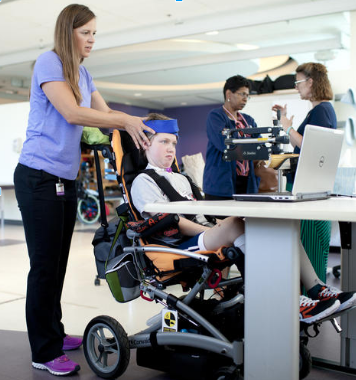 This team made up of Addie Harris (M.S. Occupational Therapy) and Rhea Montgomery-Walsh (B.S. Engineering Psychology). After several trainings at Bray, conversations with Keely, a meeting with Brendon Stafford at the new Nolop Maker Space, and Tim Moore at the Perkins Assistive Device Center, the team decided to used an arduino and a step motor connected to a light weight switch placed below Keely’s jaw. The motor was connected to a hand they made out of stiff paper, and could be raised or lowered with a single chin movement.
This team made up of Addie Harris (M.S. Occupational Therapy) and Rhea Montgomery-Walsh (B.S. Engineering Psychology). After several trainings at Bray, conversations with Keely, a meeting with Brendon Stafford at the new Nolop Maker Space, and Tim Moore at the Perkins Assistive Device Center, the team decided to used an arduino and a step motor connected to a light weight switch placed below Keely’s jaw. The motor was connected to a hand they made out of stiff paper, and could be raised or lowered with a single chin movement.
They then went through the development and testing process to create a working prototype. They then needed to build a box to encase the motor, driver, arduino and mounted the box and the switch to Keely’s chair. 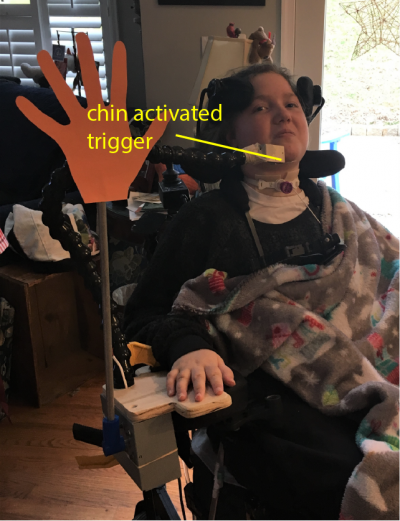
© 2026 Bray Lab
Theme by Anders Noren — Up ↑


